For decades, men who choose to engage in problematic sexual behaviors have been treated as “addicts” according to the traditional addiction model. Tragically, some professionals have labeled label victims of domestic abuse as co-addicts or codependents or told her that she can do something to “help” him. Here’s what you need to know before searching for a “CSAT therapist near me” or other sex addiction therapist or program.
As you read and listen, if you relate and find you need support, check out the Betrayal Trauma Recovery Group Session Schedule.
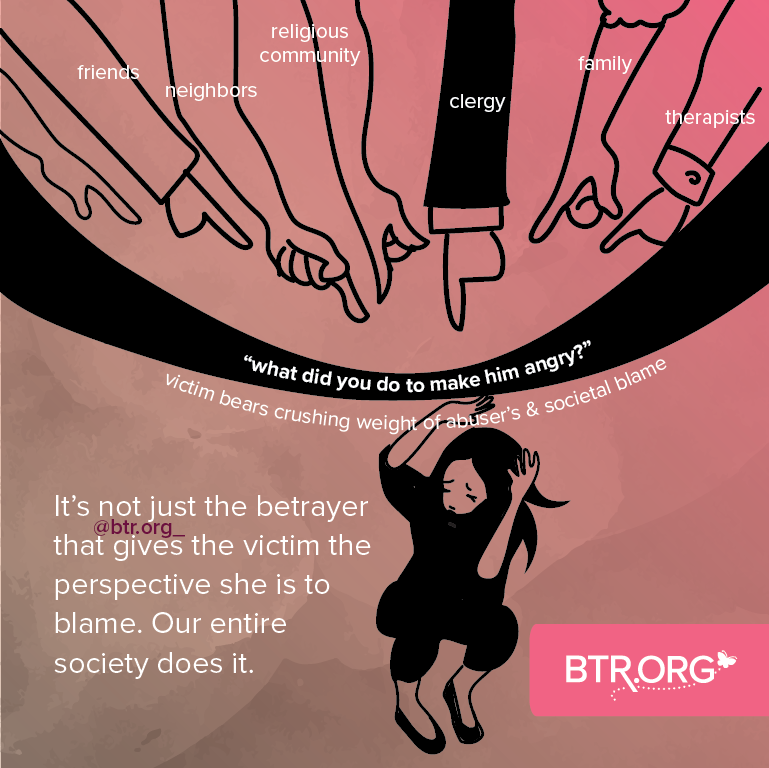
Trauma Is Caused By Abuse, Not “Addiction”
When experts call betrayed women co-addicts or codependents, they ignore the fact that we’re abuse victims.
Betrayed women are not to blame that our husband betrayed us. We’re injured due to his abuse. Many people can agree that partners experienced trauma.
Dear Sex Addiction Therapists, if you can agree that we experienced trauma due to our husband’s infidelity, why can’t you correctly define what caused the trauma?
At Betrayal Trauma Recovery, we understand the devastation of re-traumatization when professionals imply a victim cased her own abuse by labeling her a “co-addict” or “codependent”. Having personal experience going to addiction therapists, and interviewing over 200 victims of betrayal trauma throughout the years, it’s my opinion that the addiction model misses the boat because it doesn’t identify the situation as domestic abuse. BTR would never label a victim in such a way as to give her partial responsibility for his abuse.
Just to prove the point, if you’re husband has been diagnosed as an addict, he’s likely using many of these 19 different types of emotional abuse. To see, take our free emotional abuse quiz.
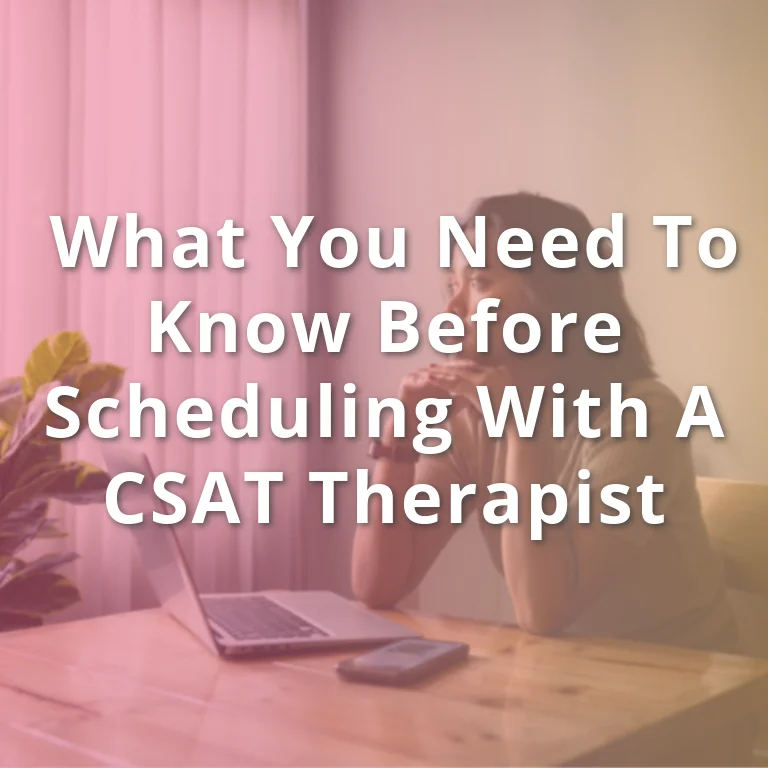
Transcript: What You Need To Know Before Scheduling With A Addiction Expert
Anne: It’s just me today. It’s heartbreaking, Many women who find this podcast have just found out their husband uses exploitative content. Or that he’s been secretly paying for women who have been exploited. Otherwise known as prostitutes, or other secret things.
If this has happened to you, maybe you went to clergy, and the clergy suggested your husband is a addict. Or perhaps you went to therapy, and a therapist suggested he’s an addict. And that diagnosis probably makes sense to you. Because if he wasn’t some kind of addict, why would he have been lying to you for years about his use or other secret behaviors?
And if you do a little research, you’ll see that many people recommend a CSAT, a certified addiction therapist, or an AASAT. So thinking you might need to get your husband one of these specializes in addiction, the rest of this episode, we’ll explain why searching for a “CSAT therapist near me” is not a good idea until you’ve been educated about abuse.
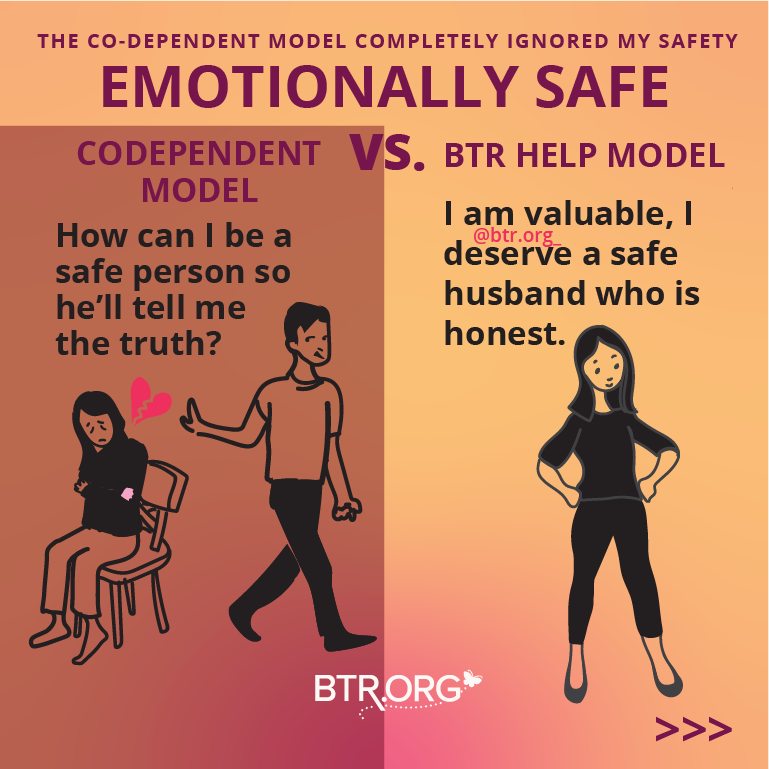
Understanding Codependency
Anne: We first need to talk about codependency. Codependency came out of the chemical dependency scene in Minnesota, around the 1970s. That was when the term was originally used to describe the symptoms that people would have, who were closely related to, or in a relationship with someone with a chemical dependency problem.
The basic idea of codependency is that a codependent person has, “Let another person’s behavior affect her.”
Now, before I get any farther. I’m setting this all up for you to realize how wrong this is when applied to sexual or emotional abuse. To know a little bit about what to expect when you go to an addiction specialist.
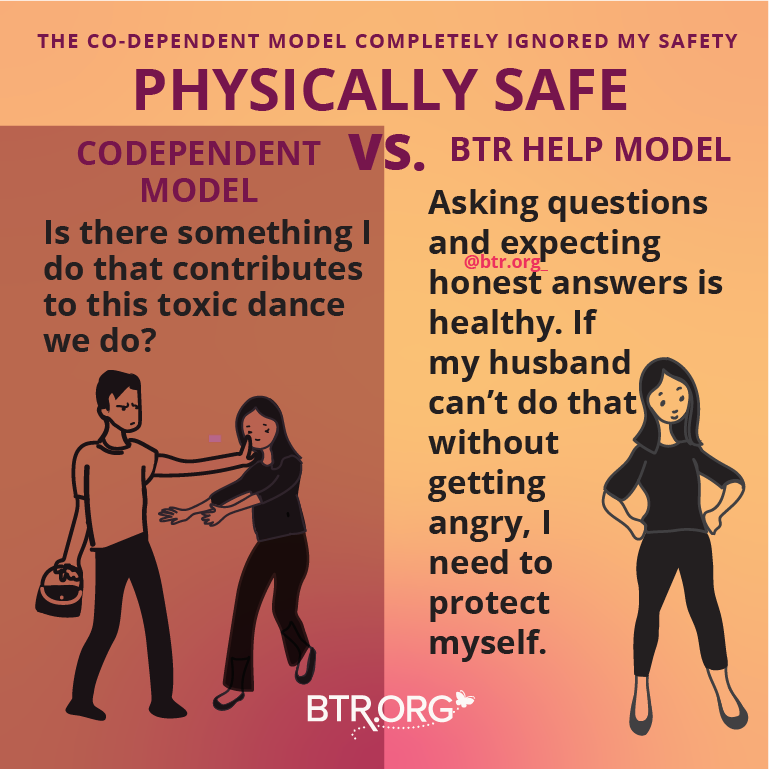
Definition Of Co-Addicts
Anne: Addiction specialists generally describe co-addiction as someone who is married to, or in a significant relationship with, an addict. These so-called co addicts demonstrate behavioral characteristics, including denial, preoccupation, enabling, rescuing, taking excessive responsibility, emotional turmoil, efforts to control, compromise of self and intimacy issues.
So how is codependency diagnosed? One of the main diagnostic criteria for codependency is that the wife of an addict is trying to control the addict. Addiction specialists in general say that co-dependency or co-addiction can range in severity. And then the “treatment” for a co addict, is to figure out how to stop letting the addict’s actions affect her. And in general views her efforts to control his behaviors are part of her “illness”.
So the main reason not to go to an addiction specialist if your husband is a so-called addict is that they won’t approach the situation from an abuse perspective.
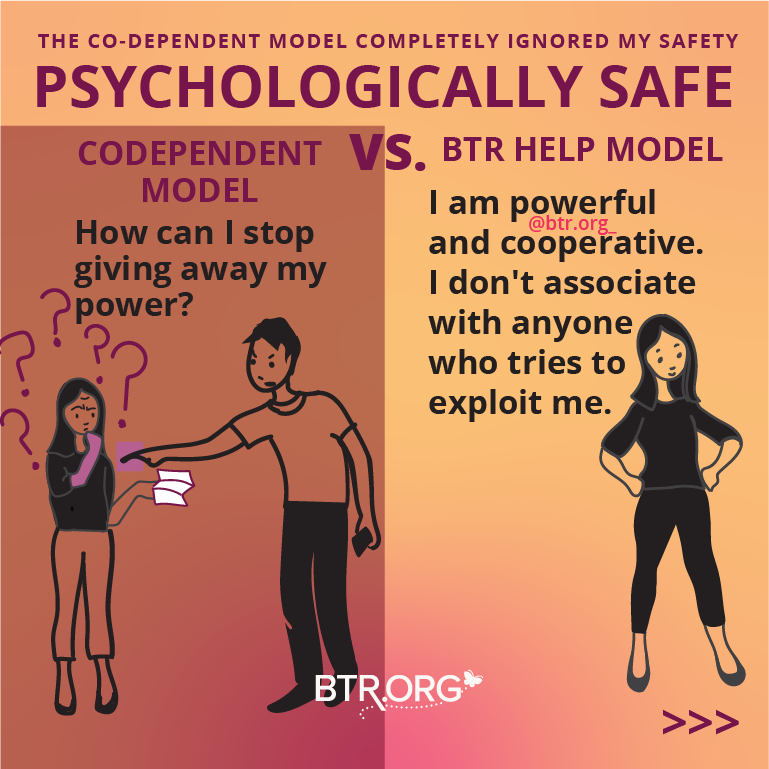
Betrayal Trauma vs. Codependency Model Used By A “CSAT Therapist near me”
Anne: Which sounds good, because betrayal trauma is the right term to use. Thank goodness it’s not a diagnosis. Healthy women react in a normal way to abuse. So if they use this term betrayal trauma, you’re like, oh, I’ll be in good hands.
But the problem is they’re not using the right model. They’ve just slapped the right word on the same old codependent, co- addict model “treatment.” And so today, with everything we know about abuse, addiction therapists still use the codependent, co-addict model. But instead of saying she needs to recover from her codependency, they say she needs to heal from her trauma. And to heal from her trauma. What does she need to do?
And they’ll tell you the same thing. Not be affected by his actions. So it’s no different than codependency in terms of what they tell you to do and how to interact. They did not and do not identify your normal reaction to abuse. So let’s go through these symptoms one at a time.
The first one denial. They say, if you refuse to see your part in it, then you’re in denial. You’re not in denial. Your husband lied to you. That’s totally different than denial.
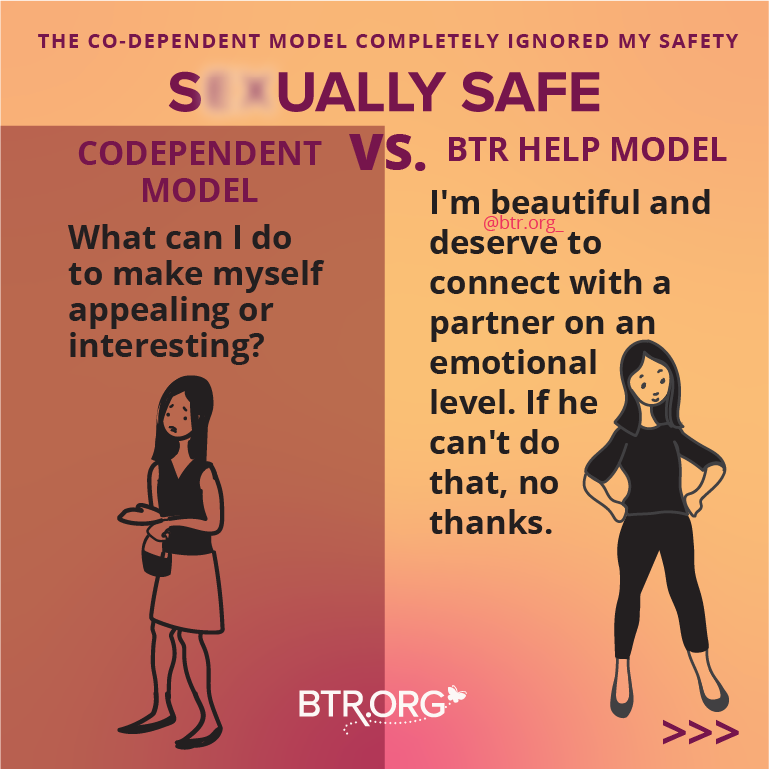
Preoccupation Is A Normal Reaction To Abuse
Anne: Preoccupation, well, of course you’re preoccupied. It’s not a sign that you’re sick. It’s a sign that you’re smart. You’re rightfully trying to ensure you’re safe. For example, if someone steals from your online bank account, and you notice a lot of money gone. It would be normal to be preoccupied with checking your bank account every day. You might end up checking it several times a day. That would be a normal thing to do.
They say you’re enabling him by rescuing him. I don’t know what they’re talking about. You want a safe and peaceful home. And so to resist the abuse, you try to get him to stop abusing you because divorce feels unsafe. Breaking up your family feels unsafe. That’s not rescuing him. That is a safety seeking behavior, because you are a completely normal person who loves her husband and wants to protect her family.
And ignoring the abuse will not protect you or your family, and you know that. And so you’re going for help. But then this help tells you that you’re part of the problem.
Misogyny In Sex addiction Therapy
Anne: So it’s a misogynistic way of basically silencing a victim to stop her from resisting the abuse, so that he can continue to do whatever he’s going to do without her complaining about it or doing anything about it. It’s extreme victim blaming, and this type of therapy traps victims into further abuse. Taking excessive responsibility, there’s anything wrong with taking responsibility for yourself.
They say you have emotional turmoil, which is apparently a problem. Your emotions will be all over the place because you’re being groomed. And then overtly abused. Of course, an abused woman is emotionally dysregulated. That makes sense.
They’re saying you are trying to control him. That’s not happening either. You are trying to create safety. They’re saying you’re angry, like it’s a bad thing. You’re angry and fantastic! You should be angry. They’re saying you have “issues.” Nope, you’re just a healthy person who doesn’t want to be intimate with an abuser.
Symptoms Of Abuse Are Normal For Victims
Anne: She could also have physical symptoms. For example, her husband, who’s been cheating on her for years when he bought services from a prostitute, then he doesn’t use protection with his wife. A woman who gets a STI from her husband, who she thinks is monogamous. That’s going to bring all kinds of emotions and reactions, and all of them are normal.
Similarly, her physical safety is on the line here. Having a roof over her head, being able to parent her children. Being able to feed her children. These are also physical risks. She doesn’t want to be out on the street nursing a baby. So to label her emotional reactions as a disease and be like, oh, why is she so angry? Oh, she needs to come at this healing from a place of compassion, not anger, is crazy. She should be angry!
The Reality Of Abuse Is Emotional Ups & Downs
Anne: Some women go numb. When women go numb, many therapists will be like, “Oh, you’re reacting well to this.” It may sound like a compliment, but it’s a veiled threat. Like, “You’re reacting well to this because you’re not reacting at all.” Which actually means if you were reacting in any other way, like becoming angry or having emotional ups and downs or getting up in front of your whole congregation and telling them the whole story. “That is inappropriate,” some may say.
But being numb after abuse actually means you’re frozen in a highly traumatized state. Only functioning administratively, and suppressing a lot of your deeper reactions for your own survival. That’s not reacting “Well.” If they’re telling you that feeling numb is good, and that anger and uncontrollable crying is inappropriate. That can’t be right. That doesn’t even make sense.
Because most victims cycle through different stages of being numb, crying and angry. The reality is that you’re resisting abuse the best way you know how at the time. Not even understanding it’s abuse. And how you react makes sense. She actually focuses on her own emotional and psychological safety. That’s why she searched for help online.
If her husband’s behaviors didn’t affect her, she wouldn’t be concerned about it. But a CSAT or AASAT or other addiction therapists may tell her that his actions are due to his addiction and don’t have anything to do with her. While simultaneously telling her she’s now suffering from pathological trauma. That she needs to resolve so that the marriage can heal.
Recap Of A The Addiction Circus
Anne: So to recap, a addiction expert will tell you, this isn’t about you. He’s not doing it to hurt you. And you need to heal from the trauma, but they never tell you what the trauma is from. There’s no part of that that makes sense. Even though this has nothing to do with you. This affects you. It hurts you. And you’re not part of the solution.
I find most women who have spent a lot of time in couple therapy or in addiction recovery therapy with their addicted husband, when they learn about emotional and psychological abuse and intimate coercion, they feel validated. Many women write me and say, “How did I not know this was abuse?” Why did the addiction professional, that I paid thousands of dollars to, not identify what this actually is: emotional and psychological abuse?
Women resonate with the abuse model because they ARE abuse victims. And it’s the only thing that makes sense. So after a victim listens to this podcast, she may go back to the addict or the CSAT therapist and say, “Hey, this is abuse.” Even though you’re trying to get to safety, and that’s the intent of confronting your abuser or telling his therapist that it’s abuse.
At Betrayal Trauma Recovery, we teach a safety strategy that helps you avoid confronting them. Because in that case, both the addict and the abuser will deny it. Or they’ll admit it. But it still won’t give you the right solution.
The Ethical Dilemma Of Treating Victim & Perpetraters Together
Anne: So let’s look at the first one, when they deny its abuse. Most addiction, recovery programs or addiction programs, whether the therapist or not, will push back, because if it’s abuse, she doesn’t need therapy. And if she doesn’t need to go to therapy, or she’s not involved somehow. Her husband will not go to therapy.
And I want you to know that the therapist may or may not know that it’s abuse. He might know it’s abuse, but avoid identifying it. Or he might not understand abuse at all, so he says it’s not abuse. If they call it abuse, for whatever reason, they can’t ethically treat both partners in the same setting.
The second the word abuse is brought up, they’ll have to basically say, I’m sorry, I can’t treat you because this is abuse. So they would have zero clients, because in my view it’s always abuse. That would implode their entire practice. And what would they do for a living? That one is about money. And let’s look at the second one when they admit it. But they still don’t give you the right solution. So there’s about a one in a million chance that they are going to identify the abuse.
So they’re going to give you the impression that they can help him. So they’re going to say, “If you keep coming back and work together, he can stop his abusive behaviors. As long as you’re willing to do your part in this relationship. And you’re going to be like, of course, because I want to save my family.”
Most Therapists Are Generally Marriage & Family Therapists
Anne: They’re not going to say to you, “This is abuse, and it’s unethical for me to treat an abuser and a victim. And so I can’t see either of you.” See, if you go to a addiction specialist, they’re likely marriage and family therapists. And the foundation of their training is family systems, which means everybody has a part to play. And it absolutely does take two people to create a healthy relationship, but it only takes one person to destroy that relationship.
A secret life, lying, pathological manipulation, gaslighting, grooming, deflection, withdrawal, coverup, hiding and blaming. None of these things take two people to pull off. One person can do them all by themselves. So whether the addiction specialist identifies the abuse and says, “No, no, no, this isn’t abusive,” or identifies the abuse and tells you, “Yes, it is abuse and I can help you.” Either way, it’s not going to be the right solution for you. The therapist should never, ever be the therapist for an abuser and his victim. Thus, joint counseling does not get you the relief that you’re likely seeking for yourself.
BTR’s Approach To Abuse Is Teaching Safety Strategies
Anne: Here at Betrayal Trauma Recovery, we don’t think victims of abuse are pathological. We don’t think victims need treatment. We think victims need to be educated about emotional and psychological abuse and intimate coercion. And since victims resist the abuse by going for help, we teach them effective safety strategies to stay safe. She’s been resisting the abuse the whole time, trying to establish emotional and psychological safety in her home. She just didn’t realize what she was facing.
And not knowing that it was abuse and not knowing that what she was resisting was abuse. She did exactly what she was supposed to do. Which was to go for help. But the problem was that the person she went to for help, did not help her. And that’s not her fault
At Betrayal Trauma Recovery, we say to victims of abuse, “Hey, you did great. You did exactly what you were supposed to do, and resisted abuse by going for help. You were trying to get to safety. Good job.” And no matter where you are in your journey to emotional and psychological safety.
There are safety strategies that work for everyone, no matter what their situation. Whether you’re still married, living with an abuser in your home, or even post divorce when you’re suffering from post-separation abuse. When he’s using your kids as pawns to continue to manipulate you.
Living Free Workshop Teaches Strategies That Work
Anne: So I’ve created The Living Free Workshop. That will teach you safety strategies that work. As we learn these new safety strategies. It’s important that we interact with other women who have been through this. Who have experienced the same type of wounding, and can hold our experience and our pain and we can do that together in our betrayal trauma recovery group sessions.
At Betrayal Trauma Recovery, that’s what we’re all about. We’re here for you, and we’re anxious to help you.
The views, opinions, and perspectives expressed in this article, podcast, or related
content reflect the personal beliefs, opinions, and experiences of the speaker(s) or
author(s). They are not intended to be, nor should they be construed as, definitive
statements of fact, professional diagnoses, or legal, medical, or therapeutic advice.
BTR provides this content for educational and informational purposes only, based
on information available to us at the time of publication. We do not guarantee the
applicability of any statements to individual circumstances.



THIS.
Yes. Yes. Yes.
I hope you will talk about the ways in which acting out partners weaponize co-dependency language to further blame shift and gaslight. It is the perfect ammunition, really.
I for one, gathered some support from attending COSA and reading COSA materials, interpreting it to fit my own sense of the situation. I decided that they were tools to help me find inner peace in this chaos and preserve my own personal integrity throughout. I did a few meetings, got what i needed in the beginning of the crisis, and went elsewhere for personal work and empowerment. The thing that has helped me the most was to recognize my situation through the lens of trauma (I hadn’t heard of the trauma lens for infidelity before but I was already studying trauma and I saw the fit instantly when I first went through my crisis beginning 5 years ago). What made me crazy throughout the past 5 years was that I was aware of what trauma-informed care looked like, but none of the 3 couples therapists we saw were practicing it. Thank you BTR. I don’t feel like I am fighting a solo fight anymore.
I also want to add that my partner’s gaslighting and psychological abusive behavior extended into the years before acting out. I now know what that was. I didn’t before.
Totally. Did your therapists claim to be trauma based? We find that most therapists claim it, but they don’t actually know what it really means or how do deal with a victim / perpetrator situation.
Anne, I can relate. Going through this now with my husband. Feel like I cannot get through this with his counselor and men’s group. Feeling like just can’t understand this conflict.
I found COSA about two years ago. My program changed over to ISA, and it has been amazing. The old ways exist, as there are members who have been there for years, AND there are members who truly believe (and quite possibly are) “codependent”. But the leadership and language of the group certainly now carries this betrayal trauma model. I am so thankful for this, for Anne Blythe’s raw personal experience and work. Most of us have absolutely experienced PTSD and Complex-PTSD, but we will not be victims forever! There is hope and healing!
I’m not gonna lie I haven’t yet read this article in it’s entirety. It’s been an incredible read thus far honestly. I definitely see the issue being abuse trauma no doubt about it. I’m wondering why it wouldn’t be an addiction on his part in addition to the abuse truama the woman would experience. If there are two people involved here wouldn’t there be two experiences? One for her and one for him. I find it interesting that so many ideas I’m reading on this subject appear to agree with one or the other side and fail to realize just like there are win / wins there are also lose / loses that occur. Both people in this situation appear to need help and be healed without the sacrifice of the other.
If a woman has experienced trauma from her husband’s lies, gaslighting, or manipulation (all abuse), her focus needs to be on her own safety and healing.
An abusive husband can choose to see himself as an addict or pursue treatment—or not. But it’s not healthy or ethical to expect a victim to be part of that process. If a woman tries to get her abuser into a program or be involved in his therapy, it can keep her stuck in a cycle of psychological abuse for years. The only way for her to know if he’s abusive or not is to get to emotional safety and observe his actions from a safe distance.
At Betrayal Trauma Recovery, our only aim is to educate women about emotional and psychological abuse and help them get to a place of safety and healing.
It’s impossible to figure out when the therapist or the partner doesn’t know about the addiction. Can you also include if the addict tells his wife that she cannot bring up anything relating to his use. This was the case for me, where we went to see a therapist but I was told by my husband to not bring anything relating to that topic up so it ended up being very detrimental to me because the therapist said I was using it as a way of controlling my husband. But in reality I was in trauma from my husbands behavior.
Yes, what you’re describing is coercive control – it’s a form of emotional abuse. When a man tells a woman what she can and can’t talk about, it’s abusive.
I learned about boundaries for the first time in a twelve-step group. For me, what was unhealthy was clinging to an addict who I knew was hurting me. I think understanding that I have a role in my response to situations is more empowering than saying I am just a victim. Yes, his addiction has nothing to do with me. I am not at fault. And my emotions (whether they include rage or despair) are not bad, they are natural. But if I respond to abuse by wanting comfort from no one but the abuser, by isolating myself, I am going to be in an unhealthy spot. I learned in 12-step groups to reach out and to surrender the addict to God. Surrendering him to God was the only thing that really could restore me to sanity, even after he stopped acting out. So maybe I have an illness caused purely by abuse. BUT, I have the power to recover from that illness, which is what the 12-steps tell me. I think that there can be a place in between these two models (betrayal trauma and co-dependency). I’m still exploring these ideas, but I really did feel like there was something empowering about understanding what I could do to control my life through the co-dependency model. I think boundaries are essential and victims 100% need to know that they are not responsible for abuse. But they are responsible for their own healing once they have resources, right?
Thank you for sharing! Women do have responsibility for setting boundaries, getting to safety, and to work toward healing, yes!
This was very helpful to me. I have been trying to heal from betrayal trauma for a year after leaving my “addict” husband of 19 years. When I first got out of the marriage, I was looking for support for partners of addicts and I couldn’t really find much of anything. To me it seemed like everything was focused on not upsetting the addict so he could stay pure, while dumping a hundred thousand cases of eggshells for me to walk on, on TOP of the eggshells I’ve been walking on for 19 years.
I got pretty angry about that. One day I told my therapist, I don’t care about the addict–there’s lots of resources for them to get help, but the resources for partner recovery seems to focus on what we can do to support the addict in their recovery. What about our trauma? What about what we have suffered through? This is a HUGE problem in society, very under-reported, and the Recovery Industrial Complex is the best we are offered? I’m so happy I found this podcast where partners are not re-victimized. Thank you!
Did you hear about the smooth talking YouTube famous therapist who was secretly divorced from his wife for a year while taking big money from couples to save their marriage? He’s currently engaged to his ‘friend’ who owns a Christian broadcasting network.
And… his cult-like followers still adore him.
I was trying to find The Betrayal Trauma Podcast, and it led me to here. Now I have so many questions, obviously, a lot of my resentment is towards my ex, and his treatment of our children.
I’m a pleaser, and an empath, so I don’t react with “my way or the highway”. But how do protect my children when I find out that he doesn’t have food in the house, he isn’t providing for their basic needs, he’s negligent, or he calls them awful things, and so many more awful scenarios a narcissist puts their kids through.
My natural, normal reaction to my kids being neglected is seen as “co-dependent” by some people. Is my being there for them as a listener when they want to vent about their situation and discuss healthy ways to cope in their feelings a codependent reaction? How do I disassociate, to the point where I don’t feel the cortisol release in my system when my child says that they were suicidal because of things their father screamed, and did to them during the timeframe they were with him? That’s a big one! However, I feel the cortisol release in my system just seeing a notification that he sent me yet another email. Not anger, but fear, and pure preparation of having to be prepared for another attack.
I so badly want to heal, however, his behaviors bring a new situation to deal with on a weekly basis. My divorce was finalized on December 2 of last year nearly 2 years after filing. And I find myself now getting ready to go to a hearing next week because he wants to get out of child support obligations. The week before that, he returned back with the kids from their supposed spring break, turns out engagement get away with his affair partner, and returned home with one of my children having second-degree burns all over them that were bleeding. Rather than take him to the doctor himself, I had to take the following day to get a prescription. Obviously as a mom, if my child is burning and uncomfortable as well as bleeding, I would think it was a necessary reaction to take them to the doctor. However, I do have a huge resentment that their dad can’t just be a dad and look out for their well-being . I would so love help on this. Thank you so much for your podcasts. I have been adamantly listening to it since I discovered it prior to Christmas.
Hi, Joy! You’re absolutely not co-dependent. You’re just trying to protect your children. I’d recommend that you enroll in the BTR.ORG Living Free Workshop that helps victims learn how to communicate with their abusers in tactical and strategic ways to protect yourself.
Wow. I get it. My husband is seeing a regular therapist right now, but my husband still doesn’t seem to fully grasp why I’m not “over it” yet. (D day was over a year ago, I discovered 5 years at least of use). He wants to continue therapy and eventually we would like to do marriage therapy, but I definitely don’t want to go to someone who victim blames.
The BTR.ORG Living Free Workshop will answer your questions about what to do next so you can ensure that you’re safe:). I would answer here, but it takes a long time to explain:).
The Living Free Workshop is 55 short video lessons. The average lesson is 3 minutes long. The total run time is 2 hours and 20 minutes. The shortest lesson is :28 seconds and the longest lesson is 6 minutes. It comes with a beautiful, FREE PDF workbook you can print at home (print it double sided). Or you can order the workbook through Amazon if you want the color version.
I’m so glad you found us!
We went to a apprently highly regarded CSAT therapist in our area and it was a nightmare! He made me sign a contract that I would have it with my husband at a scheduled time each week and also that I wouldn’t use what I learned about him in divorce proceedings. It was just an extension of all the coercion and emotional abuse. I was more traumatized by that than anything my husband ever did.